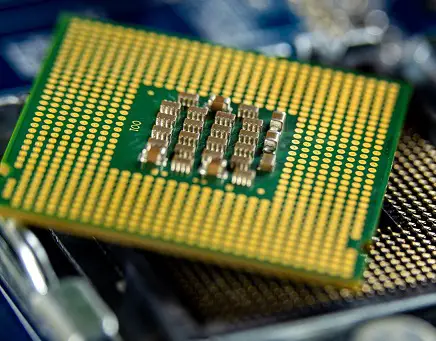Advocates are hoping to finally bring to a vote a bill which will enhance US competitiveness in the semiconductor industry by helping companies bring manufacturing operations to the US.
Commerce Secretary Gina Raimondo has been trying to bring the stalled bill, the CHIPS Act, to a vote for months as legislators use it to jockey for position and advance their own pet projects. Now in an interview, she has said she is vowing to get it done this month, despite recent setbacks.
In the interview, she said, “It’s going to get to the president’s desk this summer,” and, “there’ll be a lot of ups and downs between now and when it does.”
Raimondo says she expects, “a vote next week,” as congress has only a few weeks before the August recess starts.
Raimondo went on, “Time’s up and it’s time to take a vote.”
A version of the bill already passed the Senate in June of 2021. Raimondo noted that on both Wednesday and Thursday, officials were attending closed door meetings in Capitol Hill, working to get the bill passed by the target date.
So far, it appears the newer slimmed down version of the bill will include roughly $52 billion in new subsidies for manufacturers such as Intel who invest in US operations. The bill also appears set to give about $200 billion in tax credits to boost technical and scientific research more broadly to enhance national competitiveness with opponents such as China.
Delays with the bill were reportedly why Intel recently delayed the groundbreaking on a new Ohio semiconductor factory. Company CEO Pat Gelsinger even threatened that production would head overseas if the bill were not passed soon.
Raimondo meanwhile was also warning that chip manufacture might begin heading overseas within months, if Congress failed to act. In a subsequent letter she co-authored with Defense Secretary Lloyd Austin she warned that passing the bill was, “imperative for our national security.”
The bill however has been stalled now for months. Senate Minority Leader Mitch McConnell has threatened to block it if Democrats continued to try and pass an unrelated reconciliation package with key programs the political left wanted.
This week McConnell seemed to open the door on the slimmed down bill when he said, “There are members I have who are not overly fond of [the overall bill] but who think there’s a national security aspect to the chips deficit.”
Raimondo quickly seized on the opportunity to “cleave off” the CHIPS Act from other legislation and pass the smaller stand-alone bill. However that quickly ran into opposition from other legislators, most notably John Cornyn from Texas, who appears to be trying to link it to another bill he wants passed.
Then on Friday, Democrats indicated they might take the CHIPS Act and place it inside the larger reconciliation package they want passed.
Raimondo has still not given up however. In her interview, saying she hopes there is enough of a sense of urgency to finally get the bill done and sent to the President’s desk for a signature.

